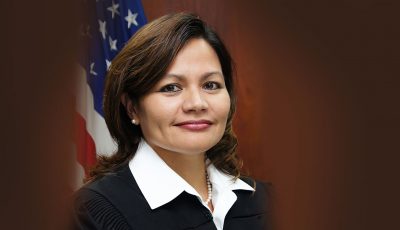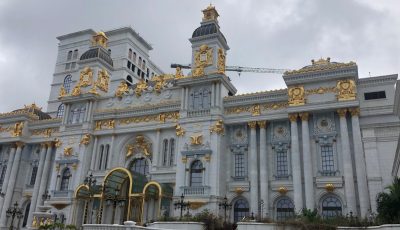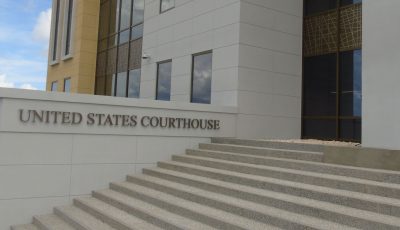DelRosario’s claims vs Hocog dismissed
Judge rules Hocog’s conduct covered by legislative immunity
The Superior Court has dismissed the claims against Lt. Gov. Victor B. Hocog in his personal and official capacities in connection with the lawsuit filed by former Department of Public Lands secretary John DelRosario for the transfer of $400,000 in government funds to operate cargo ship M/V Luta.
In a seven-page order on Wednesday, judge pro tempore Timothy H. Bellas determined that Hocog’s conduct is covered by the constitutional doctrine of legislative immunity.
Bellas said dismissal of Hocog is appropriate as DelRosario cannot amend his complaint to circumvent the applicability of absolute legislative immunity.
The case against Hocog is dismissed with prejudice, which means DelRosario cannot re-file the case.
Bellas said DelRosario’s complaint sets out allegations of acts that all took place while then-senator Hocog participated in legislative functions.
DelRosario asked the court to adopt tests, which require the court to analyze the substance and motives of legislative activities.
The judge declined to do so, pointing out that the test espoused by the CNMI Supreme Court is to analyze whether the alleged action(s) took place within the “legislative sphere.” If so, the act is cloaked by legislative immunity.
“The court is compelled, by the authority cited, to find that the courts are not the proper venue to analyze the actions of legislators when they present, discuss, and/or vote on resolutions or perform other acts which are within the legislative sphere,” Bellas said.
Here, Bellas noted, the alleged participation of Hocog in the drafting and adoption of Resolution 19-3 occurred in the “legislative sphere.”
“To paraphrase the U.S. Supreme Court, if abuses occur within the legislature then it is the legislators and the voters that are the ultimate mechanisms for discouraging or correcting such abuses and not the courts,” the judge said.
DelRosario filed the taxpayer’s lawsuit against Hocog and Finance Secretary Larrisa Larson in May over the alleged adoption of a Rota Legislative Delegation Resolution 19-3 without public notice that purportedly authorized payment of $400,000 to Luta Mermaid LLC, a private company owned by Hocog’s relatives.
DelRosario, through counsel Jennifer Dockter, sued Hocog and Larson for breach of fiduciary duties, and expenditure of public funds for an improper purpose. In addition, he sued Hocog for violation of the Open Government Act.
Hocog moved to dismiss the complaint. Bellas held the hearing last Nov. 30. Dockter argued for DelRosario. Assistant attorney general Christopher Timmons represented Hocog in his personal capacity, while assistant attorney general James Zarones appeared as counsel for Hocog and Larson in their official capacities.
Hocog, through counsels, argued that all three causes of actions brought against him should be dismissed because the complaint sets forth facts that establish the affirmative defense of legislative immunity.
The claims in the complaint are breach of fiduciary duty, expenditure of public funds for an improper purpose, and violation of the Open Government Act.
DelRosario, through Dockter, argued that when Hocog participated in the passage of Resolution 19-3, his motives were improper. Dockter said Resolution 19-3 was designed to enrich Hocog and/or members of his family.
Even assuming that Hocog had improper motives, he is nonetheless shielded by legislative immunity, Bellas said.
He said there is little doubt that drafting, discussing, voting on, and/or adopting a resolution are activities within the “legislative sphere.”
On the issue of alleged improper expenditure of public funds, Bellas said even if Hocog’s actions are viewed as a local appropriation measure, they are protected by legislative immunity.
The judge pointed out that DelRosario’s complaint does not plead any additional facts that demonstrate how Hocog was directly responsible for the expenditure of public money, other than the passage of the resolution.
Even if legislators are supposed to comply with the Open Government Act, Bellas said they are immune from being sued to enforce such compliance when the meeting or other action is within the legislative sphere.



























